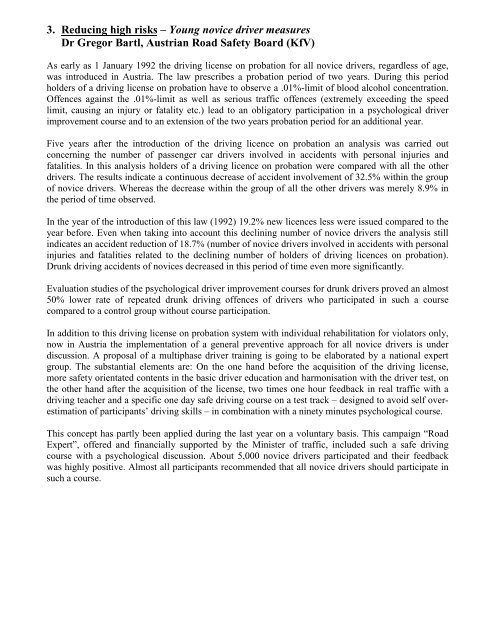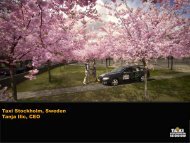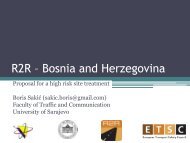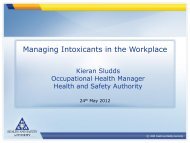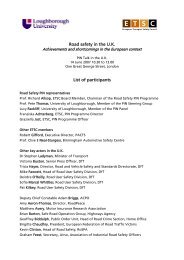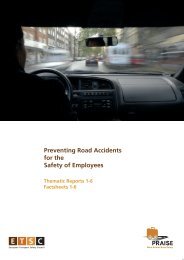BEST IN EUROPE ROAD SAFETY CONFERENCE - ETSC
BEST IN EUROPE ROAD SAFETY CONFERENCE - ETSC
BEST IN EUROPE ROAD SAFETY CONFERENCE - ETSC
Create successful ePaper yourself
Turn your PDF publications into a flip-book with our unique Google optimized e-Paper software.
3. Reducing high risks – Young novice driver measures<br />
Dr Gregor Bartl, Austrian Road Safety Board (KfV)<br />
As early as 1 January 1992 the driving license on probation for all novice drivers, regardless of age,<br />
was introduced in Austria. The law prescribes a probation period of two years. During this period<br />
holders of a driving license on probation have to observe a .01%-limit of blood alcohol concentration.<br />
Offences against the .01%-limit as well as serious traffic offences (extremely exceeding the speed<br />
limit, causing an injury or fatality etc.) lead to an obligatory participation in a psychological driver<br />
improvement course and to an extension of the two years probation period for an additional year.<br />
Five years after the introduction of the driving licence on probation an analysis was carried out<br />
concerning the number of passenger car drivers involved in accidents with personal injuries and<br />
fatalities. In this analysis holders of a driving licence on probation were compared with all the other<br />
drivers. The results indicate a continuous decrease of accident involvement of 32.5% within the group<br />
of novice drivers. Whereas the decrease within the group of all the other drivers was merely 8.9% in<br />
the period of time observed.<br />
In the year of the introduction of this law (1992) 19.2% new licences less were issued compared to the<br />
year before. Even when taking into account this declining number of novice drivers the analysis still<br />
indicates an accident reduction of 18.7% (number of novice drivers involved in accidents with personal<br />
injuries and fatalities related to the declining number of holders of driving licences on probation).<br />
Drunk driving accidents of novices decreased in this period of time even more significantly.<br />
Evaluation studies of the psychological driver improvement courses for drunk drivers proved an almost<br />
50% lower rate of repeated drunk driving offences of drivers who participated in such a course<br />
compared to a control group without course participation.<br />
In addition to this driving license on probation system with individual rehabilitation for violators only,<br />
now in Austria the implementation of a general preventive approach for all novice drivers is under<br />
discussion. A proposal of a multiphase driver training is going to be elaborated by a national expert<br />
group. The substantial elements are: On the one hand before the acquisition of the driving license,<br />
more safety orientated contents in the basic driver education and harmonisation with the driver test, on<br />
the other hand after the acquisition of the license, two times one hour feedback in real traffic with a<br />
driving teacher and a specific one day safe driving course on a test track – designed to avoid self overestimation<br />
of participants’ driving skills – in combination with a ninety minutes psychological course.<br />
This concept has partly been applied during the last year on a voluntary basis. This campaign “Road<br />
Expert”, offered and financially supported by the Minister of traffic, included such a safe driving<br />
course with a psychological discussion. About 5,000 novice drivers participated and their feedback<br />
was highly positive. Almost all participants recommended that all novice drivers should participate in<br />
such a course.


